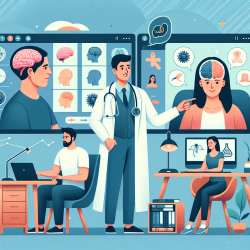Understanding Implicit Bias in Education
Implicit biases are unconscious attitudes or stereotypes that affect our understanding, actions, and decisions. In the context of education, these biases can significantly impact student outcomes, particularly for racially and ethnically minoritized students. The research article "Examining Implicit Biases of Pre-Service Educators Within a Professional Development Context" sheds light on the prevalence of these biases among pre-service educators and offers insights into how they can be addressed through professional development.
The Research Findings
The study involved 154 pre-service educators enrolled in a mandatory anti-bullying and anti-discrimination training program in New York State. The findings revealed that biases were most frequently directed towards Asian/Asian Americans, Black/African Americans, males, and individuals from socioeconomically disadvantaged backgrounds. Despite an open-minded approach to discussing biases, many educators did not express a desire to change their potentially biased interactions with students.
Implications for Practice
Addressing implicit biases in education is crucial for creating equitable learning environments. The study highlights the need for comprehensive professional development programs that focus on:
- Bias Awareness: Educators need to become aware of their biases and understand how these can affect their interactions with students.
- Culturally Responsive Teaching: Training should include strategies for incorporating cultural knowledge and antiracist approaches into teaching practices.
- Critical Race Theory (CRT): Utilizing CRT can help educators understand the systemic nature of racism and its impact on educational outcomes.
Moving Forward
For educators to effectively support diverse student populations, they must engage in ongoing reflection and professional development. This involves challenging their own beliefs and biases and adopting practices that promote inclusivity and equity in the classroom.
To read the original research paper, please follow this link: Examining Implicit Biases of Pre-Service Educators Within a Professional Development Context.










